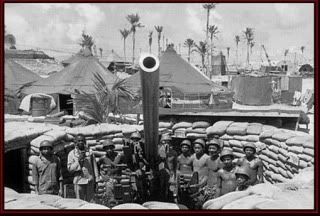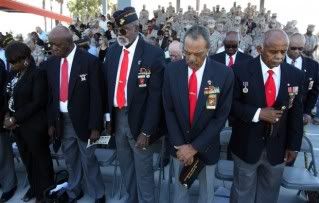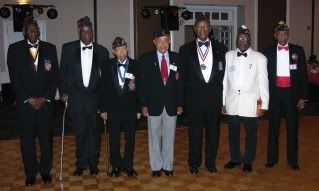Next Year Things Will Get Better!
At the end of each year it's a Rite of Passage to look back on the predictions made at its start and see which ones were accurate and which failed to materialize. I was especially interested in 2011 because it was supposed to be  the transformational eve for the major prophecies about 2012. So I took a journey into the history of predictions and was surprised where I ended up.
the transformational eve for the major prophecies about 2012. So I took a journey into the history of predictions and was surprised where I ended up.
 the transformational eve for the major prophecies about 2012. So I took a journey into the history of predictions and was surprised where I ended up.
the transformational eve for the major prophecies about 2012. So I took a journey into the history of predictions and was surprised where I ended up. Annual predictions have been part of every culture on earth far longer than recorded history. Geologist found star systems mapped out on cave walls dating over 25,000 years showing that ancient people looked to the stars for some sort of guidance. The movement of the constellations dictated the building of temples, the planting of crops, or the start of a war. So, I followed the trail from ancient times to the present to find out why predictions seem to be such an important part of our collective heritage.
It's a natural behavior to contemplate the end of one season while preparing for the next one. Animals, birds and even the elements do it - storing up food, migrating to greener or temperate environs, air and temperature changing from hot to cold and back again. But humans add one more aspect to the process not evident in the other kingdoms. That aspect is Hope. It's an inherent trait evident in our species. Hiding behind the obvious prediction, humans assess their current situation but are generally hopeful things will get better the following year.
 Well publicized predictions through the ages are easy to find but not so the more subtle evidences of 'hope'. While preparing to write the December article a story found me. It's depth and scope was heart-warming. It was a story that showed how Hope remained kindled in the hearts of a group of men for more than 70 years even as their numbers dwindled. Their story is an indicator of human patience, conviction and finally justice. It's evidence of humanity's belief that "it will get better next year." From that perspective all the predictions of 2011 came into focus.
Well publicized predictions through the ages are easy to find but not so the more subtle evidences of 'hope'. While preparing to write the December article a story found me. It's depth and scope was heart-warming. It was a story that showed how Hope remained kindled in the hearts of a group of men for more than 70 years even as their numbers dwindled. Their story is an indicator of human patience, conviction and finally justice. It's evidence of humanity's belief that "it will get better next year." From that perspective all the predictions of 2011 came into focus.Most have heard of the Tuskegee Airmen, a squadron of African American pilots who served in World War II. But there were thousands of other African Americans who joined the elite Marine Corps whose stories were kept under wraps until 2011. "The Montford Point Marines" as they were called for the segregated boot camp they trained in, faced discrimination from the time they signed on until they were discharged. In the racism of 1941, the commandant of the Marines, when ordered to enlist the black recruits, said he would "rather take 5,000 white soldiers over 250,000 blacks."
The "Montford Marines" were sent to different boot camps from the white soldiers and kept in segregated units. When deployed, they sat in segregated trains. If the "black cars" were full, they had to wait for the next train, even if the white cars were empty. Their service was restricted to support services like defending the base or hauling ammunition to the front lines of battle. In the South Pacific these Marines carried their injured white counterparts back to safety while others readily picked up the weapons of the white Marines who were killed in battle. They stayed and engaged the fight before being ordered back to the rear at the conclusion of the battle.
and kept in segregated units. When deployed, they sat in segregated trains. If the "black cars" were full, they had to wait for the next train, even if the white cars were empty. Their service was restricted to support services like defending the base or hauling ammunition to the front lines of battle. In the South Pacific these Marines carried their injured white counterparts back to safety while others readily picked up the weapons of the white Marines who were killed in battle. They stayed and engaged the fight before being ordered back to the rear at the conclusion of the battle.
 and kept in segregated units. When deployed, they sat in segregated trains. If the "black cars" were full, they had to wait for the next train, even if the white cars were empty. Their service was restricted to support services like defending the base or hauling ammunition to the front lines of battle. In the South Pacific these Marines carried their injured white counterparts back to safety while others readily picked up the weapons of the white Marines who were killed in battle. They stayed and engaged the fight before being ordered back to the rear at the conclusion of the battle.
and kept in segregated units. When deployed, they sat in segregated trains. If the "black cars" were full, they had to wait for the next train, even if the white cars were empty. Their service was restricted to support services like defending the base or hauling ammunition to the front lines of battle. In the South Pacific these Marines carried their injured white counterparts back to safety while others readily picked up the weapons of the white Marines who were killed in battle. They stayed and engaged the fight before being ordered back to the rear at the conclusion of the battle. At the end of the war they faced more humiliation and discrimination when they returned home. The Red Cross routinely set up Welcome Home Stations with music, banners, coffee and sandwiches at the train stops for the soldiers coming home. Yet when a train with black soldiers entered the station locals closed and shuttered the food booths until the train left the station.
Because they were not encouraged to remain in the service, the "Montford Marines" quietly exited the stage of national consciousness feeling unwanted and unrecognized. But none of them ever forgot they were once "proud marines." For 70 years, though the Marine Corps refused to recognize them, they met every year to honor themselves, always hoping that "next year it will get better."
 Amid all the financial, political, and environmental predictions about 2011, no one paid any attention to the dwindling number of Montford Marines, now in their 80's and 90's. That is until the current Marine Commandant heard about them and looked into their story. It so captured his attention he wanted to rectify the wrongs of the past. He ordered that all new recruits be taught the history of the Montford Point Marines along with the rest of the Corps' legacy. He incorporated their story into the curriculum of advanced classes for senior officers. Then he went a step further.
Amid all the financial, political, and environmental predictions about 2011, no one paid any attention to the dwindling number of Montford Marines, now in their 80's and 90's. That is until the current Marine Commandant heard about them and looked into their story. It so captured his attention he wanted to rectify the wrongs of the past. He ordered that all new recruits be taught the history of the Montford Point Marines along with the rest of the Corps' legacy. He incorporated their story into the curriculum of advanced classes for senior officers. Then he went a step further. He rounded up the remaining "Montford Marines" some in wheelchairs, others using canes, to Washington D.C. where they were feted at a banquet hosted by the commandant and served by young marines in crisp blue uniforms. They watched a parade in their honor with the Marine Corp commandant and other military dignitaries. They met black officers who were now commanding the Marines. In a rare showing of bipartisan support, the US House of Representatives unanimously approved the Gold Congressional Medal for all the "Montford Marines" formally recognizing them for their proud service to the country.
The outpouring of support overwhelmed the aging veterans. One, struggling with his emotions said, "At last I feel like a real marine!" When their bravery in the jungles of the south Pacific was mentioned, one said, "We did everything to prove our mettle, but it never seemed to be enough until now." One of the Montford Marines told a black officer "I feel so much pride seeing you in that Marine uniform. It's enough to make an old marine cry." The officer responded, "I owe it all to you, Sir! I stand on your shoulders."
emotions said, "At last I feel like a real marine!" When their bravery in the jungles of the south Pacific was mentioned, one said, "We did everything to prove our mettle, but it never seemed to be enough until now." One of the Montford Marines told a black officer "I feel so much pride seeing you in that Marine uniform. It's enough to make an old marine cry." The officer responded, "I owe it all to you, Sir! I stand on your shoulders."
 emotions said, "At last I feel like a real marine!" When their bravery in the jungles of the south Pacific was mentioned, one said, "We did everything to prove our mettle, but it never seemed to be enough until now." One of the Montford Marines told a black officer "I feel so much pride seeing you in that Marine uniform. It's enough to make an old marine cry." The officer responded, "I owe it all to you, Sir! I stand on your shoulders."
emotions said, "At last I feel like a real marine!" When their bravery in the jungles of the south Pacific was mentioned, one said, "We did everything to prove our mettle, but it never seemed to be enough until now." One of the Montford Marines told a black officer "I feel so much pride seeing you in that Marine uniform. It's enough to make an old marine cry." The officer responded, "I owe it all to you, Sir! I stand on your shoulders."It took a stodgy military seventy years to make things right. All the while, the dwindling "Montford Marines" kept hoping that "next year things will get better." Then in 2011 a shift in consciousness occurred and things did get better for the remaining Marines. It was just a matter of patience and hope.
Jo Mooy - December, 2011

No comments:
Post a Comment